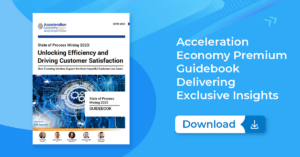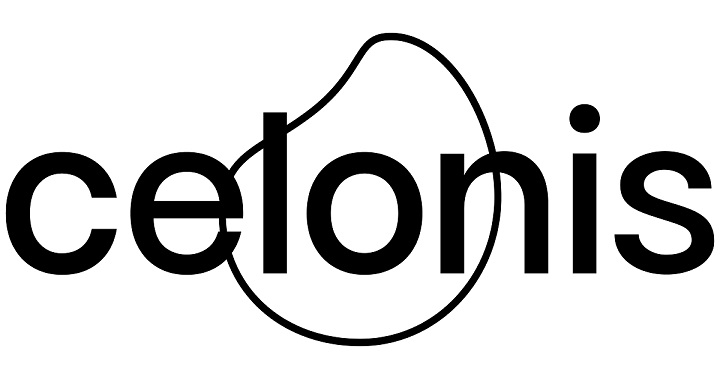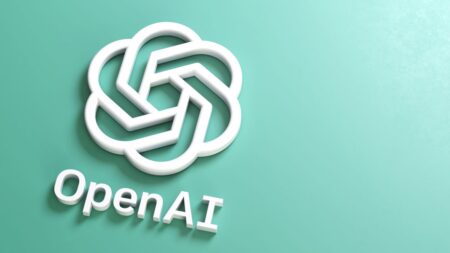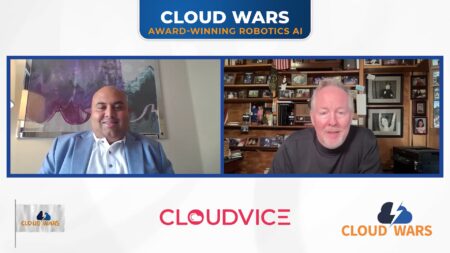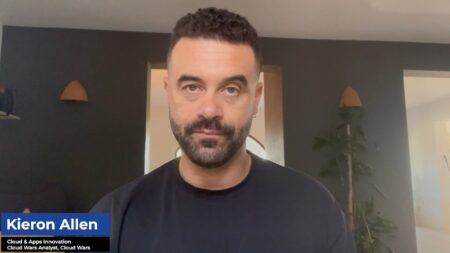In this Celosphere 2023 interview, Acceleration Economy’s Tom Smith and Celonis‘ Laura Gardner speak with Eugenio Cassiano, senior vice president, strategy and innovation at Celonis Labs.
This episode is sponsored by Acceleration Economy’s AI Ecosystem Course, available on demand. Discover how AI has created a new ecosystem of partnerships with a fresh spirit of customer-centric cocreation and renewed focus on reimagining what is possible.
Highlights
Cassiano leads Celonis Labs, which explores new business model innovation and how it can go beyond the functionality of current products. He also leads the Strategy Innovation Group which seeks to identify “white spaces” for ways to advance the company’s technology.
Business Collaboration Networks (01:42)
The Process Intelligence Graph is a major product/innovation that was introduced at Celosphere. The graph is based on a common taxonomy or ontology that represents objects in the same language regardless of system source. The next logical step, and a focus for Celonis Labs, is how companies can be connected together, speaking the same language to drive operational excellence and higher productivity across a value chain. Celonis is recruiting early customers to participate and give feedback through Business Collaboration Networks. The first “cluster” is in the consumer electronics market and it aims to provide transparency across the entire value chain.
Orchestration Engines (03:14)
Orchestration engines are a way to adjust workflows in real time. Together with partners, Celonis has an Orchestration Engine that’s fed by intelligence at each process step. AmerCare Royal is a customer that started with a line-of-business approach to using Celonis and they see the potential to translate this into an end-to-end “digital brain.” In that context, Cassiano describes the concept of an autonomous enterprise that uses a digital twin of all its systems represented with standard Celonis language; in AmerCare Royal’s case, this approach is improving their product return process. Before using the Orchestration Engine, that process took more than 20 days. Today, that happens on the same day. The work has improved customer experience and human work in addition to shortening the return cycle time.
Generative AI (08:22)
Cassiano says generative AI (GenAI) is beneficial in two dimensions: productivity use cases and business-model-changing use cases. Customers are focused in the near term on productivity — whatever helps them complete day-to-day work in marketing or sales, for example. Unlocking new business models in still in the research stage. A future capability could be GenAI describing or creating an orchestration sequence that can receive data from Celonis’ process mining engine.




